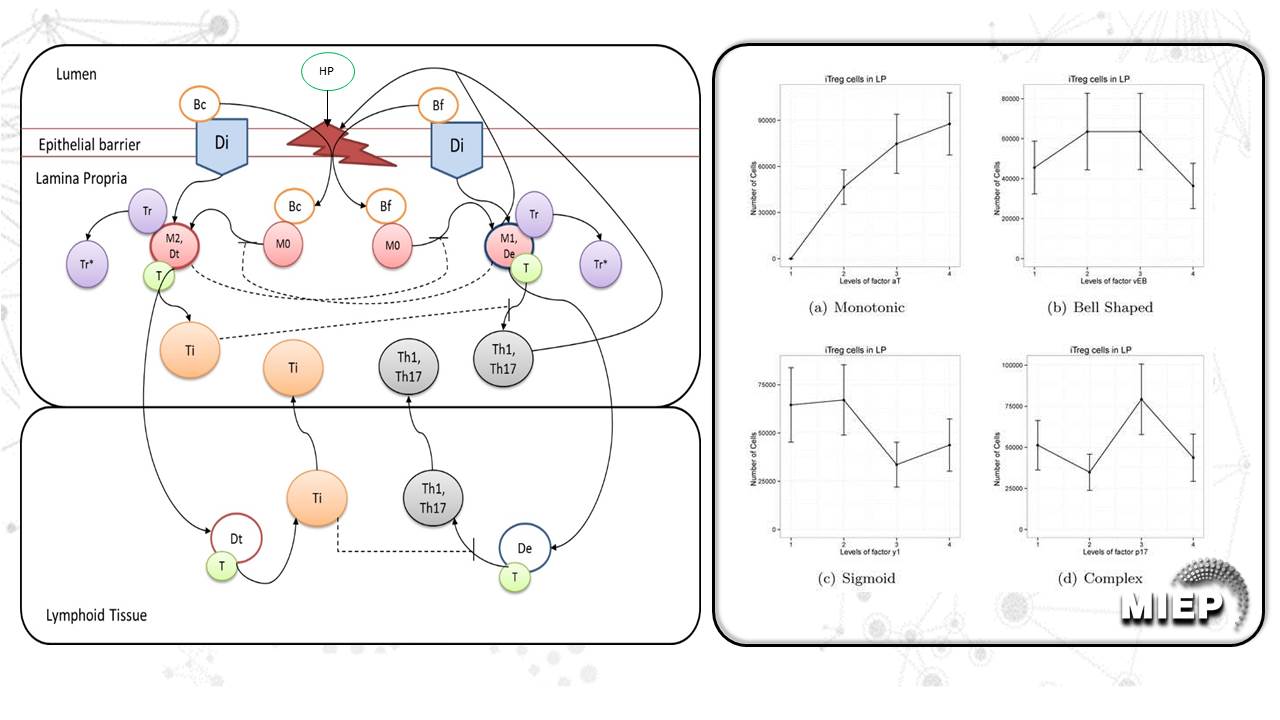MIEP Develops New Sensitivity Analyses Methodologies for Non-intuitive Hypothesis Generation

The MIEP team has developed a novel and scalable sensitivity analysis (SA) method for quantifying the impact of parameter uncertainty in large, complex agent-based models (ABM) of the immune system with a scalability of 107 to 1010 agents.
The approach captured the temporal significance of parameters in a model of immune responses to Helicobacter pylori. This new methodology can also be used to generate new computational hypotheses related to emerging and non-intuitive behaviors of complex systems. For instance, a SA-enabled non-intuitive finding of our ENISI modeling work involves investigating the mechanistic relationship between epithelium and macrophages. Based on sensitivity analyses results, interaction between epithelial cells and H. pylori leads to a sequential accumulation of macrophages following infection that helps create a regulatory tissue microenvironment favoring bacterial persistence.
MIEP’s innovative SA techniques can be generalized to other areas of computational modeling such as computational epidemics, social network analysis or in silico clinical trials. Additionally, the new SA method can be a useful tool for validation and parameter when wet lab experimentation is costly, time consuming or impractical; or when the computational resources for in silico experimentation are limited. The next steps include implementing this innovative SA technology in MIEP’s next-generation ENISI MSM modeling platform.
About NIMML
The NIMML Institute is a 501 (c) (3) non-profit public charity foundation focused on a transdisciplinary, team-science approach to precision medicine at the interface of immunology, inflammation, and metabolism. The NIMML Institute team has led numerous large-scale transdisciplinary projects and is dedicated to solving important societal problems by combining the expertise of immunologists, computational biologists, toxicologists, modelers, translational researchers, and molecular biologists. The Institute is headquartered in Blacksburg, VA. For more information, please visit www.nimml.org or contact pio@nimml.org.
